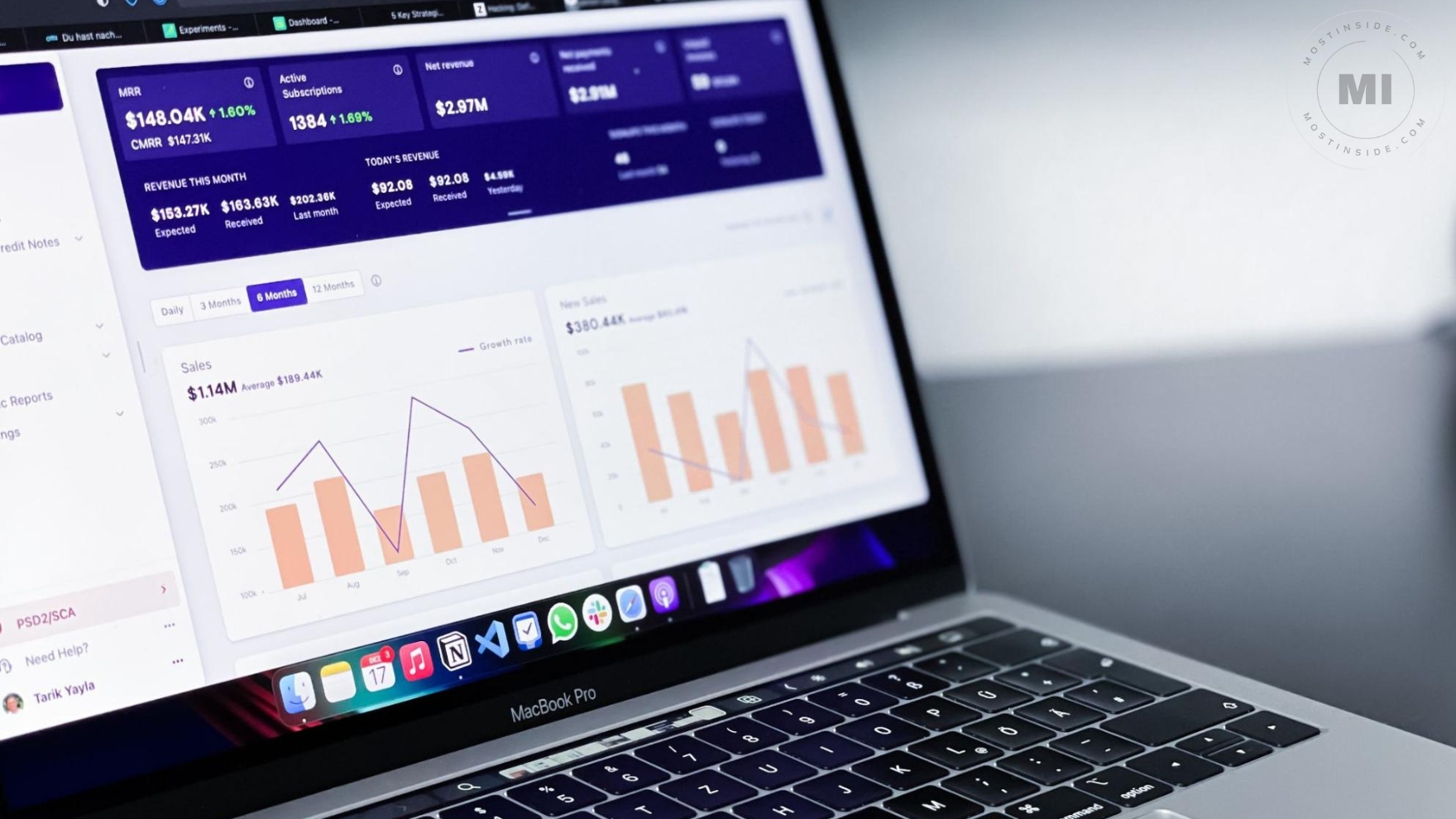Important Metrics To Consider When Conducting SEO For Your Online Business
This post was last updated on July 19th, 2024
Search engine optimization (SEO) is the process of optimizing a website so that it ranks higher in search engine results pages (SERPs). This is done through a variety of techniques that are designed to improve the visibility of a website in organic (non-paid) search engine results.

These techniques include keyword optimization, content optimization, link building from linksclerk and more. By improving a website’s visibility in organic search results, people are more likely to find and visit the website, increasing traffic to the site.
In addition, SEO is often used to drive conversions by making it easier for potential customers to find and make purchases.
With proper SEO implementation, businesses can expect to see an increase in their site’s visibility as well as an increase in conversions.
What are SEO metrics?
SEO metrics are measurements used to evaluate the performance of a website and its content in search engine rankings.
These metrics include page ranking, domain authority, backlinks, organic traffic, keyword rankings, and click-through rates (CTR). By measuring these variables, it is possible to analyze which SEO tactics are working best for a given website and to make adjustments as needed.
Additionally, some SEO metrics are used to assess the effectiveness of a website’s overall search engine optimization efforts.
Why are They so Important?
Measuring these metrics can help guide future strategies, allowing businesses to stay competitive in the ever-evolving field of SEO.
By understanding how these metrics work and what they mean for your business, you can make informed decisions about how to best optimize your website for search engine rankings.
The use of analytics and metrics is an invaluable tool in any successful digital marketing strategy, and understanding the nuances of these metrics will help ensure that your SEO efforts are effectively targeting customers.
By taking the time to learn about these metrics and incorporating them into your digital marketing efforts, you can ensure that your website is reaching its full potential.
Understanding SEO metrics is an important part of any successful digital marketing strategy, as it helps you make informed decisions about how to improve your website’s search engine rankings and reach potential customers.
If you take the time to research these metrics and incorporate them into your digital marketing efforts, you can ensure that your website is getting the most out of its SEO efforts.
The use of SEO metrics is an invaluable tool in today’s competitive digital marketing environment, and it is essential to understand how these metrics work and what they mean for your business.
Further educating yourself in SEO metrics can help you make more informed decisions about how to optimize your website for search engine rankings, attract more customers, and stay competitive in today’s highly competitive digital marketing environment.
What are the Most Important SEO Metrics?
The most important SEO metrics to track are organic search traffic, organic keywords, page rankings, click-through rate (CTR), and backlinks.
Organic search traffic is the number of visitors that come to your website from natural search results. This metric is highly valuable because it indicates how well your pages are ranking in search engines for various queries.
Referring domains are another important SEO metric to consider. They refer to the number of websites referring back to your website, which is an indicator of trust and authority.
Having many referring domains shows that your website is a reliable source of information, which can make it more attractive to search engine algorithms and can lead to higher rankings in the search engine results pages. Additionally, referring domains can provide valuable links that can drive more organic traffic to your website.
Organic keywords are the specific words and phrases that people use to find your website in search engines. Keeping track of these keywords can help you optimize your pages for better rankings.
Page rankings measure how high a given page appears in search engine results for various queries. A high ranking indicates good optimization and an effective SEO strategy.
Click-through rate (CTR) is the percentage of people who click on a given page after viewing it in search engine results. This metric helps you determine how effective your pages are at capturing organic traffic and gaining visitors.
Finally, backlinks are links from other websites to your own. Having more backlinks indicates that other websites recognize the value of your content and want to share it with their audience. Tracking backlinks can help you build relationships with other websites and expand your reach.
By keeping track of these five SEO metrics, you can gain valuable insight into the effectiveness of your SEO strategy and make informed decisions about optimizing your pages for better rankings.
How to Improve Your SEO metrics
There are many ways to do this and they all require dedication and hard work. SEO is, indeed, defined as a free way to make rankings work for you but over time and due to misuse it became a studious field and blogs and businesses invest money in it.
The basics are as follows:
Create Quality Content
High-quality content that is relevant to the user’s query, informs them and meets their needs will help your website rank higher. Make sure that you create content that is well-researched, original and informative.
Use Keywords Effectively
Choosing the best keywords and phrases to use in your content is essential for SEO. Research the keywords and phrases related to your topic so that search engines can identify them and rank you higher.
Optimize Images
Optimizing your images for search engines will give you an edge in terms of rankings. Use descriptive filenames, ALT tags, captions, and descriptions to give search engines more information about your images.
Implement Structured Data
Structured data helps search engine crawlers understand the meaning of webpages by providing them with additional metadata about the content on your pages. Use structured data formats like Schema.org or microdata to make sure that search bots can understand your content better.
Build Backlinks
Link building is one of the most important aspects of SEO and it can increase your website’s visibility in search engine results pages (SERPs). Reach out to reputable websites to request links from them or use guest blogging or broken link building tactics to gain backlinks.
Increase Page Load Speed
If your website takes a long time to load, it can have an impact on your rankings. Make sure that you optimize your code, compress images and use caching tools to improve the speed of your website.
Optimize for Mobile Users
Nowadays, most users access websites through their mobile devices. You should make sure that your website is optimized for mobile devices so that users have a great experience browsing it. Use responsive design, optimize page loading speed and simplify navigation to make sure you rank higher in SERPs.
Monitor Your SEO Metrics
Once you’ve implemented all of the SEO techniques mentioned above, you should monitor your SEO metrics to see if your efforts are paying off. Keep track of your rankings, traffic and conversions so that you can measure the success of your SEO efforts.
Final Word
SEO metrics can be an invaluable tool for businesses as they provide valuable insights into the performance of their website.
Ultimately, incorporating SEO metrics into your business’s online marketing strategy is an effective way to measure website performance, identify areas for improvement, and make informed decisions about your SEO strategy.
As with any marketing activity, it is important to be aware of the latest trends and do research in order to keep up with the competition.
With the right metrics and a thoughtful approach, businesses can ensure that their SEO efforts are effective and help them reach their goals more quickly and efficiently.
Recommended For You
What Business Would You Run If You Were Super Wealthy?
Most Inside
Most Inside offers high-quality recommendations and valuable updates to enhance all aspects of your life, providing premium guidance and enriching experiences.




